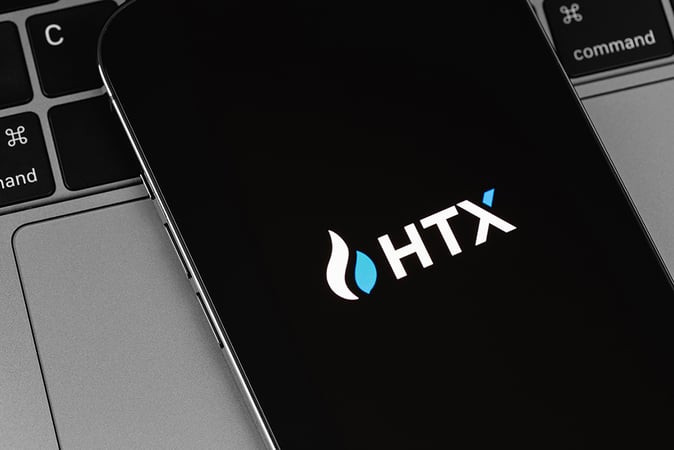What has surprised many observers closely monitoring these illicit activities is the recurring association of these hacks with platforms connected to Justin Sun.
The cryptocurrency trading platform HTX, formerly known as Huobi, which has ties to industry entrepreneur Justin Sun, regained functionality this week following a security breach resulting in an estimated $30 million loss. On November 22, HTX was a victim of a hack targeting online hot wallets, which allowed the attackers to withdraw user funds.
After temporarily halting deposits and withdrawals, HTX announced this week it had restored those capabilities for top assets like Bitcoin, Ethereum, Tron, and Tether. Additional coin reinstatements are expected within a week.
#Bitcoin (#$BTC) deposits and withdrawals have now been fully reinstated on @HTX_Global. As of now, all major currencies including $BTC, $ETH, TRX, and $USDT are available for complete deposit and withdrawal functionality on HTX.
— H.E. Justin Sun 孙宇晨 (@justinsuntron) November 26, 2023
This latest HTX hack comes on the heels of two other recent attacks on Sun-affiliated platforms. Earlier in November, crypto exchange Poloniex lost approximately $118 million, while HTX itself lost nearly $8 million shortly after its rebranding from Huobi in late September.
The series of successful security breaches raises concerns about the cybersecurity practices enacted on exchanges linked to Sun, such as HTX and Poloniex. Their ability to safeguard users cryptocurrency wallets and assets is under scrutiny after millions were stolen. While functionality is restored for now, the impacts on user trust and withdrawal levels may have long-term implications if lapses continue to occur.
November Is Regarded as a Hacker Month as More than $290 Million Disappears
November can been tagged as Hacker Month, marked by a series of hacking incidents that led to the disappearance of more than $290 million in funds. On-chain analytics firm Lookonchain revealed this startling figure in a recent tweet.
Is November Hacker Month?
In just 20 days, 5 major hacks occurred, with funds exceeding $290M. pic.twitter.com/e5rTf0apFD
— Lookonchain (@lookonchain) November 23, 2023
The trend continued on November 23, when decentralized finance (DeFi) platform Kronos Research fell victim to a theft amounting to $25 million. The stolen funds consisted of 24.57 million $USDT, 488.7 $ETH, and 125,056 USDC. Another hack occurred on November 19 on KyberSwap, a defi platform, resulting in the loss of over $46.5 million. The stolen assets included wrapped $ETH, wrapped staked $ETH, and Aribitrun tokens. Furthermore, on November 22, Heco Bridge experienced an exploit that led to the disappearance of more than $86.6 million.
What has surprised many observers closely monitoring these illicit activities is the recurring association of these hacks with platforms connected to Justin Sun. This has raised doubts among individuals concerning the effectiveness of the security measures employed within his platform.
Justin Sun Allegedly Planning an Exit Scam
In an attempt to shed light on the situation, Whalewire, another cryptocurrency analytics source, suggested that Justin Sun might be contemplating an exit scam, particularly in light of the mysterious disappearance of over $250 million from his platforms. This speculation emerged following the recent developments involving Binance and FTX former CEOs and founders, CZ and Sam Bankman-Fried.
BREAKING: JUSTIN SUN EXIT SCAMS AGAIN.
Two other platforms owned by Justin Sun have just had ANOTHER $100+ million mysteriously drained from them: the HTX (Huobi) exchange and Heco bridge.
Justin Sun is again claiming it is a "hack" – Just like he did last week when his… pic.twitter.com/U1j6YyO7Jy
— WhaleWire (@WhaleWire) November 22, 2023
The analytics account posited that the HTX CEO might be planning an exit scam, citing previous instances where cryptocurrency companies experienced sudden collapses attributed to hacks from unknown sources. One such case was the FTX crash in the previous year, while another notable example was the infamous collapse of Mt. Gox in 2014, which was once the world’s largest Bitcoin exchange. Although these incidents were initially attributed to hacks, subsequent investigations revealed the significant involvement of the founders in the downfall of these platforms.
 coinspeaker.com
coinspeaker.com
